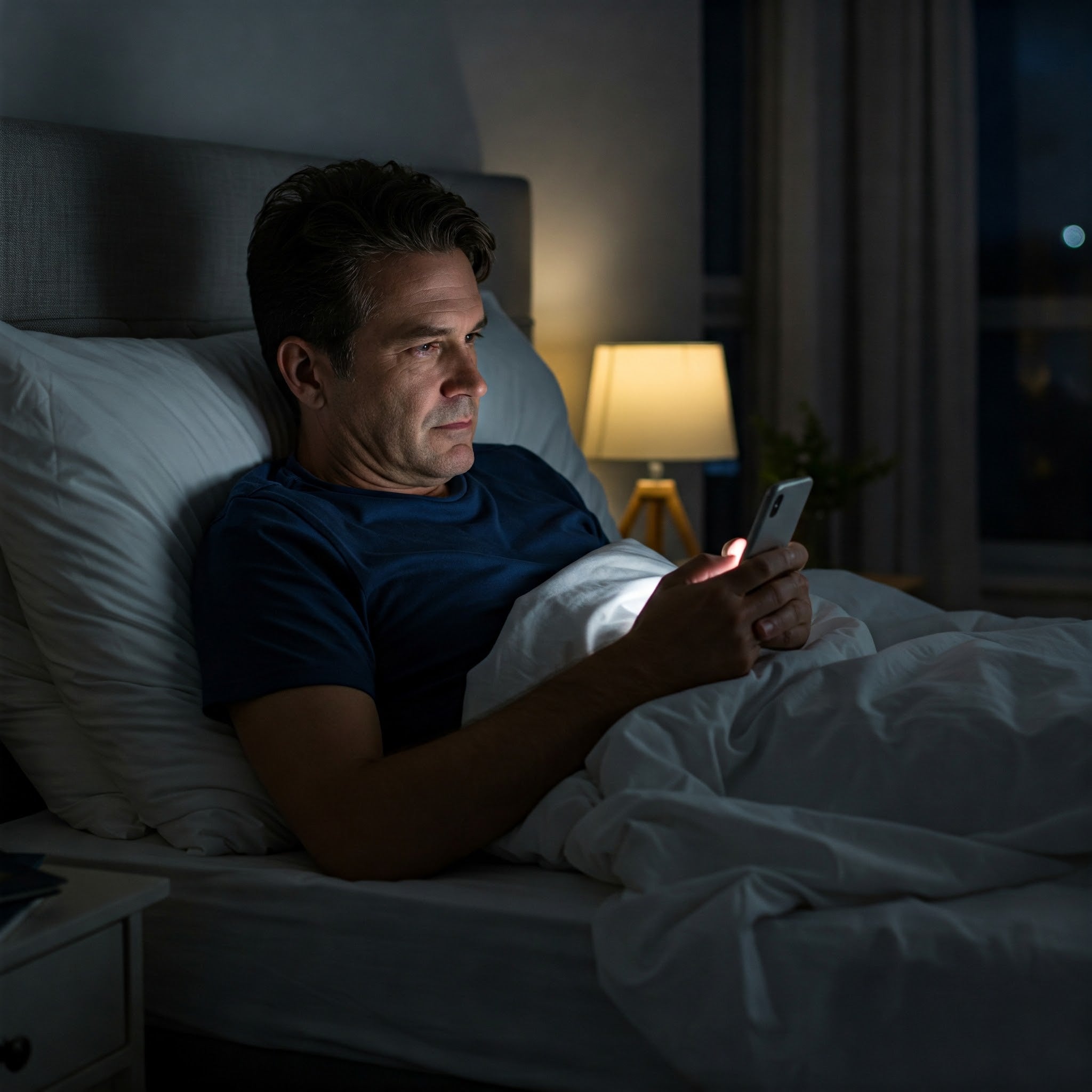
Is Lack of Sleep Killing You? Here Are the Hidden Risks No One Ever Told You
Sleep is one of those pillars of life that we often take for granted. We sacrifice it to work late, to watch another episode of our favorite series or simply because "we don't have time". But what really happens to our bodies when we don't get enough sleep? And, most importantly, how can we fix it?
The risks of sleep deprivation
Sleep deprivation isn’t just about feeling tired or having dark circles under your eyes. It’s a serious problem that can affect your health in ways you don’t know.
Let's start with the heart. When we sleep, the body regulates blood pressure and reduces stress on the cardiovascular system. However, sleeping less than 7 hours a night can lead to hypertension, heart attacks, and strokes. It's like driving a car without ever changing the oil: sooner or later, the engine will break.

Then there's the immune system. While you sleep, your body produces cytokines, proteins that fight infection and inflammation. Lack of sleep leaves the field open for viruses and bacteria, making you more vulnerable to disease.
And the brain? Sleep deprivation is a mental nightmare. It reduces your ability to concentrate, remember, and make decisions. In severe cases, it can lead to paranoia, hallucinations, and even suicidal thoughts.
Let's not forget weight. Not sleeping enough alters the levels of ghrelin and leptin, the hormones that regulate hunger. The result? An uncontrollable appetite and a tendency to eat foods rich in sugar and fat.
Finally, there is the risk of early mortality. Studies have shown that those who sleep less than 6 hours a night are at a higher risk of dying prematurely. This is not a matter to be taken lightly.

How to improve sleep
Now that you know what the risks are, it's time to take action. Here are some practical tips to improve the quality of your sleep and wake up every morning full of energy.
Start with a regular routine. Go to bed and wake up at the same time every day, even on weekends. This helps regulate your body's circadian rhythm, making it easier to fall asleep and wake up naturally.
Create an ideal sleeping environment. Your bedroom should be cool, quiet, and dark. Use blackout curtains or an eye mask, and consider a diffuser with relaxing essential oils like lavender.

Limit technology use before bed. The blue light from screens inhibits the production of melatonin, the sleep hormone. Try to turn off devices at least an hour before bed and dedicate yourself to relaxing activities such as reading or meditation.
Exercise regularly, but not too late. Exercise improves sleep, but intense workouts in the evening can have the opposite effect. Opt for an evening walk or some stretching.
Finally, pay attention to your diet. Eat foods rich in magnesium and tryptophan, such as nuts, bananas, and fatty fish, which promote relaxation. Avoid caffeine and alcohol in the evening, which can disrupt sleep.
Conclusion
Sleep is not a luxury; it is a necessity. Neglecting rest puts your physical, mental and emotional health at risk. Take the time to improve the quality of your sleep; your body and mind will thank you.
Don't wait for your symptoms to get worse. Start creating healthy habits today and turn your sleep into an ally for a longer, more energetic life.



Leave a comment
This site is protected by hCaptcha and the hCaptcha Privacy Policy and Terms of Service apply.